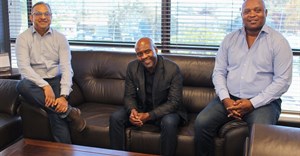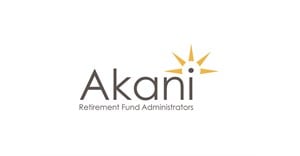#AfricaMonth
Trending
 NHI Bill set to face legal challengesNqobile Dludla
NHI Bill set to face legal challengesNqobile Dludla



 Sewage pollutes KwaZulu-Natal’s popular south coast lagoonsSteve Kretzmann
Sewage pollutes KwaZulu-Natal’s popular south coast lagoonsSteve Kretzmann
Elections 2024
Jobs
- Company Representative Garden Route
- Executive Personal Assistant Cape Town
- Half Day Receptionist / Office Manager George
The seven deadly sins of BEE
Most business owners strategise and plan their BEE company policy in order to reach the best level. In the quest for a good BEE certificate, business owners are often frustrated and fall victim to the many pitfalls of BEE.
The seven deadly sins are relevant to BEE. As with most things in life, whether an issue brings positive or negative results depends on the approach taken. For example, if a business owner is wrathful with regards to BEE, opportunities can be missed; contrary to popular belief, BEE brings about many business and marketing opportunities. Business owners can get so stuck on the negative that they cannot focus on the opportunities.
Greed and gluttony
Greed will also interfere with optimum results. When a business owner wants to keep all of the opportunities to himself and not share with a BEE partner, it could lead to fronting. There are various forms of fronting, such as: selling shares without involvement or authority in the business or contracting BEE companies to win a tender and then outsourcing the work to non-compliant companies. Government considers fronting a criminal offence.
Greed and gluttony, not being willing to share what is on your table, go hand in hand. There is an onus on business owners and managers to develop the skills of employees and interns selflessly. To combat this gluttony, Enterprise Development and Socio-Economic Development incentivise the sharing of profits and recognise such investment in the less fortunate.
The fourth deadly sin as applied to BEE is sloth. This relates to poor paperwork and sloppy records, which will cost the company BEE scorecard points and cause file fatigue. The correct way of handling this is to keep the data up to date on a daily basis. When entrepreneurial assistance is provided, keep the records of the entrepreneur on file and up to date. The same applies to all the elements. Poor paperwork or a complete misunderstanding of requirements is the biggest problem that verification agencies have to deal with. Often clients spend time explaining to the verification agency that certain documentation should not be needed, yet the administration and paper trail is prescribed.
Learn from past mistakes
Pride may interfere with obtaining a high level of BEE compliance. It is up to the business owner or manager to learn from past mistakes. When this does not happen, or when responsibilities are abdicated from, BEE will become a cumbersome process. Many senior managers abdicate the entire process or delegate it to someone without any real power, only to become angered when the scorecard does not live up to expectations.
The sixth deadly sin is lust, or in the case of BEE, lack of self-control. In order to obtain the best possible BEE certification, a business owner has to plan carefully, be selfless and execute the BEE strategy effectively. This takes self-control and a putting aside of personal desires.
There is also a need to develop and mentor other business people in order to gain enterprise development points; this leaves no space for envy in the BEE environment. The purpose of BEE is to empower the previously disadvantaged of our people. It could be easy to be jealous of black business owners and dismiss their successes as artificial, but we need many successful black business owners to grow our economy. However, the best scenario would be to focus on developing black suppliers.
Missing the opportunity of BEE transformation
It is easy for business managers to miss the point. They consume energy with being angry, frustrated or ignorant and miss the opportunity of BEE transformation completely. Often they wait for a crisis, doing nothing about BEE certification until a tender is due or a client procurement department withholds a payment or order, then a quick fix is required. Unfortunately, in BEE verification there are no quick fixes. Often the same scenario replays itself out year after year. It is important to learn from the past rather than argue with the verification agency. Do not make assumptions. The rules and regulations as prescribed by the codes are complicated. It is not possible to do verification according to unrealistic expectations, hearsay or rumour. It is necessary to understand the actual requirements and work with the verification agency or consultant to obtain the best BEE level possible.
Working towards the best possible BEE certification result will assist a company in gaining marketing advantage in most industries, or at worst, it will at least assist a company not to lose market share to its competitors. To avoid or resent BEE may lead to missed opportunities, while not heeding the warning about the seven deadly sins of BEE may put your business at risk.











